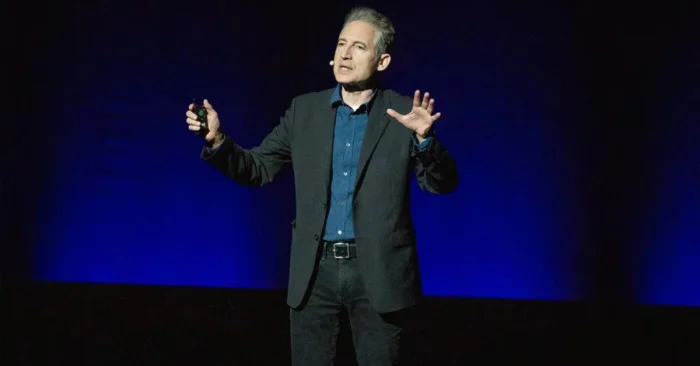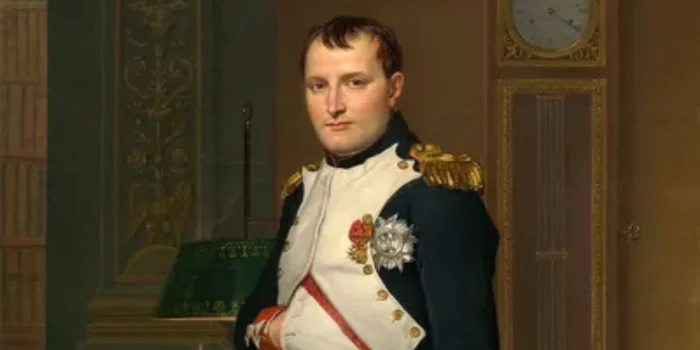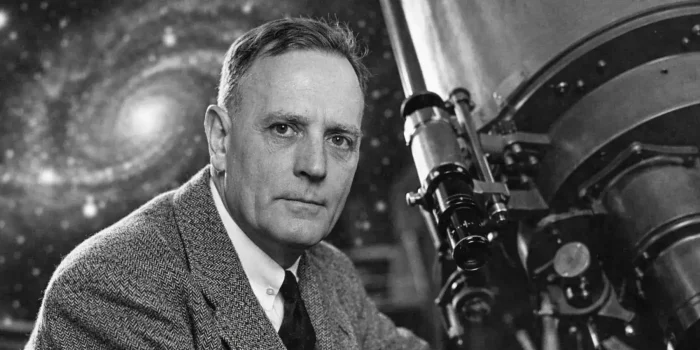Brian Greene – Biography
Early Life and Education
Brian Greene was born on February 9, 1963, in New York City. Raised in Manhattan, he grew up in an intellectually stimulating environment. His father, Alan Greene, was a composer and voice teacher, while his mother, Eunice, was a former actress. From a young age, Brian displayed a natural talent for mathematics and an insatiable curiosity about the universe. As a student at Stuyvesant High School, one of New York’s top science schools, Greene excelled in physics and math, setting the stage for his future career. He continued his education at Harvard University, graduating summa cum laude with a degree in physics. Earning a Rhodes Scholarship, Greene went on to complete his Ph.D. in theoretical physics at Oxford University, where he began his deep exploration into string theory, a field that would define much of his career.
Scientific Career and String Theory Research
After receiving his doctorate, Greene began an academic career that quickly established him as a leading theoretical physicist. He taught at Cornell University before joining the faculty at Columbia University, where he remains a professor. His research focuses on string theory, an ambitious attempt to unify quantum mechanics and general relativity into a single framework. String theory proposes that the universe’s fundamental particles are actually tiny vibrating strings. Greene made significant contributions to understanding the geometry of extra dimensions and the concept of “mirror symmetry,” advancing key ideas in the field. His scientific work has earned respect worldwide, but it’s his ability to bring complex concepts to the public that has made him famous beyond academic circles.
Bringing Physics to the Public
Brian Greene’s talent for explaining complicated scientific ideas to general audiences set him apart. In 1999, he published “The Elegant Universe,” which became a bestseller and introduced millions to string theory, quantum mechanics, and the nature of space and time. The book was later adapted into a PBS television series, earning critical acclaim. Greene followed with other best-selling books, including “The Fabric of the Cosmos,” “The Hidden Reality,” and “Until the End of Time,” each exploring profound questions about reality, time, and existence. Through his clear, engaging style, Greene made topics once reserved for physicists accessible and captivating for everyday readers, helping to ignite public interest in modern physics.
World Science Festival and Public Engagement
In 2008, Greene co-founded the World Science Festival alongside his wife, journalist Tracy Day. The festival, held annually in New York City, brings together scientists, artists, and the public to explore scientific discoveries and their implications. It has grown into one of the world’s most influential science outreach events, drawing audiences from around the globe. Through live events, online programs, and global forums, the festival reflects Greene’s mission to make science an integral part of cultural life. His public lectures and media appearances continue to reach millions, reinforcing his role as one of the most effective science communicators of his generation.
Philosophy and Broader Influence
Greene’s work extends beyond physics into deep philosophical discussions about humanity’s place in the cosmos. In “Until the End of Time,” he explores not only physical laws but also consciousness, art, and the human search for meaning. Greene suggests that even in a universe governed by impersonal laws, the human experience offers its own kind of profound beauty. By blending science with philosophy, he invites readers to think deeply about existence, making his work resonate with both scientific and general audiences. His insights have positioned him as a public intellectual, contributing to discussions that bridge science, philosophy, and culture.
Personal Life and Recognition
Brian Greene is married to Tracy Day, and they share a passion for science education and outreach through the World Science Festival. Despite his busy public schedule, Greene remains actively involved in research and teaching at Columbia University. His contributions have earned him numerous honors, including the Andrew Gemant Award for bringing the humanistic aspects of physics to the public. Greene continues to inspire curiosity about the universe, proving that complex scientific ideas can be accessible, exciting, and relevant to everyone.
Conclusion
Brian Greene’s career reflects a rare blend of scientific brilliance and public communication. Through his pioneering research in string theory and his best-selling books, he has made some of the most complex ideas in physics understandable and compelling. His leadership in founding the World Science Festival and his commitment to science education have made him one of the most influential voices in science today. Greene’s work continues to inspire people around the world to explore the wonders of the universe and embrace the power of scientific discovery.
Frequently Asked Questions (FAQs)
What is Brian Greene known for?
Brian Greene is known for his work in string theory and for popularizing science through books, lectures, and media appearances.
What is “The Elegant Universe” about?
“The Elegant Universe” explains string theory and its potential to unify the laws of physics, making complex ideas accessible to general readers.
What is the World Science Festival?
The World Science Festival, co-founded by Greene, is an annual event that brings science to the public through lectures, discussions, and interactive events.
Where does Brian Greene teach?
Brian Greene is a professor of physics and mathematics at Columbia University in New York City.
What are some of his other books?
Greene’s other books include “The Fabric of the Cosmos,” “The Hidden Reality,” and “Until the End of Time.”






